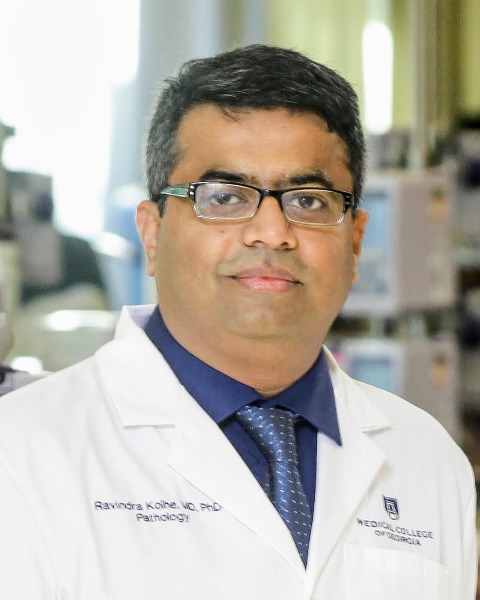Molecular Profiling in Difficult Samples From NSCLC Quickly and Cost-Effectively
Wednesday, November 20, 2024
2:00 PM - 2:50 PM PST
Location: 114 & 115, Level 1
- DD

Ravindra Kolhe, MD. PhD. FCAP.
Professor of Pathology and Associate Dean Medical College of Georgia
Augusta University
MARTINEZ, Georgia, United States
Corporate Workshop Speaker(s)
Next-generation sequencing (NGS) is vital for profiling solid tumor samples but faces challenges like complex workflows and bioinformatics, resulting in high costs and long turnaround times. Additionally, formalin-fixed, paraffin-embedded (FFPE) biopsies often produce poor-quality, low-quantity DNA, leading to significant failure rates with NGS, known as Quality/Quantity Not Sufficient (QNS).
Join Dr. Ravindra Kolhe, Professor and Chair of Pathology at Georgia Cancer Center, and Dr. Darren Davis, Senior Vice President at Precision For Medicine, for a workshop on a targeted workflow using the Agena MassARRAY System. This robust, cost-effective multi-gene mutation profiling approach provides rapid insights from low-input NSCLC-derived FFPE samples, achieving 100% concordance with NGS and high reproducibility, even for samples previously deemed QNS.
Join Dr. Ravindra Kolhe, Professor and Chair of Pathology at Georgia Cancer Center, and Dr. Darren Davis, Senior Vice President at Precision For Medicine, for a workshop on a targeted workflow using the Agena MassARRAY System. This robust, cost-effective multi-gene mutation profiling approach provides rapid insights from low-input NSCLC-derived FFPE samples, achieving 100% concordance with NGS and high reproducibility, even for samples previously deemed QNS.

